FREDA PAYNE / “Band Of Gold”
If you listen to a lot of soul music from both the late Sixties and the early Seventies, you’ll realize that something changed around the turn of the decade. As the Seventies began, songs became longer, vocal performances became more dramatic and arrangements became more complex and involved. In the wake of Marvin Gaye’s landmark album What’s Going On, soul singers began to take themselves more seriously not just as performers but also as communicators. They wanted to make not just hit records but also statements.
Along the way though, something was lost. Now keep in mind, I love classic Seventies soul. So I say this more as an observation than a criticism, but there’s something about soul from the Sixties that makes me smile and sing along (even when the song is sad) in a way that Seventies soul usually doesn’t. As compared to Seventies soul, Sixties soul songs tend to be more tidy and compact. There isn’t much in the way of lulls or interludes or drawn out drama. If there’s a story to be told (and usually there is), the singer tends to get right to the point. By the first rhyme, you pretty much know what kind of song you’re listening to: a cheating song, a break-up song, a getting-back-together song, a she’s/he’s the apple of my eye song, etc.
In the decade to follow, soul songs almost became showpieces for the capability of the vocalist and the political or philosophical opinions of the songwriter. It became possible to recognize records not just by the performer but also by the lyricist and/or the producer. What I’m getting at is, in Seventies Soul there developed an “individualization” of the music. Back in the Sixties, the composers, producers and arrangers were more anonymous, if not quite interchangeable. I recognize Sixties soul songs not by how the singer sings but by the character or the timbre of the singer’s voice and by the rhythm and feel of their phrasing. You won’t hear much melisma or ululating – just plain ol’ singing. No one was trying to prove how impressive their breath control was and, generally speaking, singers weren’t trying to change the listener’s way of thinking. It was more like trying to change your afternoon by giving you something nice to sing along to. So with no further blah blahing from me, here are the tunes.
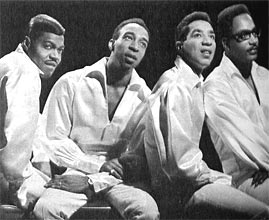 Smokey Robinson & The Miracles – “I Second That Emotion.” Originally released as a 7” single (Tamla, 1967). Available on Ooh Baby Baby: The Anthology.
According to wikipedia, Smokey Robinson came up with the lyrics to this hit tune (#1 R&B / #4 Pop) after hearing Al Cleveland (Smokey’s friend and the co-writer of the tune in question) mispronounce the phrase ‘I second that motion’ while the two were out one day Christmas shopping. I don’t know if the story is true, but even if it isn’t, it sounds good. Smokey’s lyrics are strong, but as usual, it’s his flawless falsetto that carries the day.
Smokey Robinson & The Miracles – “I Second That Emotion.” Originally released as a 7” single (Tamla, 1967). Available on Ooh Baby Baby: The Anthology.
According to wikipedia, Smokey Robinson came up with the lyrics to this hit tune (#1 R&B / #4 Pop) after hearing Al Cleveland (Smokey’s friend and the co-writer of the tune in question) mispronounce the phrase ‘I second that motion’ while the two were out one day Christmas shopping. I don’t know if the story is true, but even if it isn’t, it sounds good. Smokey’s lyrics are strong, but as usual, it’s his flawless falsetto that carries the day.
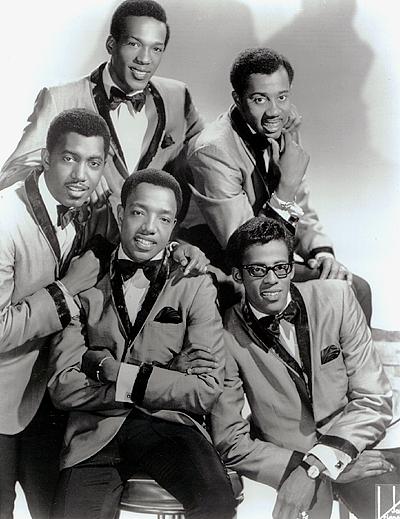 The Temptations – “I Wish It Would Rain.” From The Temptations Wish It Would Rain (Gordy, 1967).
Released only two months after “I Second That Emotion,” “I Wish It Would Rain” followed Smokey’s tune up the charts and ended up peaking in the identical position (#1 R&B / #4 Pop). But while Smokey’s lyrics were a fantasy, the lyrics for the Temptations’ hit told a true story and tragically so. As Melvin Franklin (of the Temptations) told Billboard magazine, “Roger's wife, whom he loved very much, was unfaithful to him – and he committed suicide because of it. He never got to know that it [“I Wish It Would Rain”] was a gold record." Who was Roger? As it happens, Roger Penzabene was the Motown staffer who wrote the lyrics to the song. Damn, man. Damn.
The Temptations – “I Wish It Would Rain.” From The Temptations Wish It Would Rain (Gordy, 1967).
Released only two months after “I Second That Emotion,” “I Wish It Would Rain” followed Smokey’s tune up the charts and ended up peaking in the identical position (#1 R&B / #4 Pop). But while Smokey’s lyrics were a fantasy, the lyrics for the Temptations’ hit told a true story and tragically so. As Melvin Franklin (of the Temptations) told Billboard magazine, “Roger's wife, whom he loved very much, was unfaithful to him – and he committed suicide because of it. He never got to know that it [“I Wish It Would Rain”] was a gold record." Who was Roger? As it happens, Roger Penzabene was the Motown staffer who wrote the lyrics to the song. Damn, man. Damn.
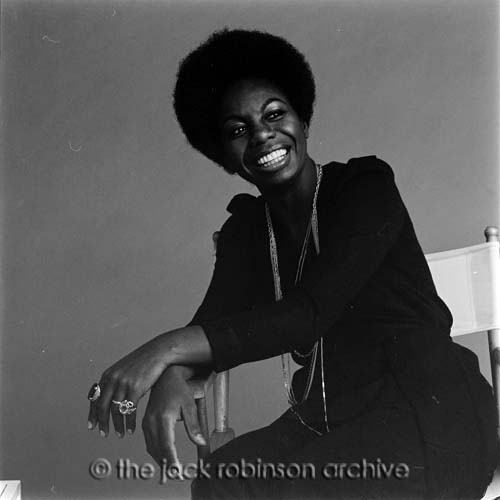 Nina Simone – “To Love Somebody.” From To Love Somebody (RCA, 1969).
As Kalamu detailed back in April, “To Love Somebody” was originally a Bee Gees song. Robin and Barry Gibb wrote it 1967, the same year the two above-mentioned Motown records went to #1. Two years later, Nina’s version hit the UK charts, becoming one of her most popular singles. I read a couple comments online about Nina’s cover being sappy or overly pop-sounding, but I dig it. Then again, I seem to like everything Nina does.
Nina Simone – “To Love Somebody.” From To Love Somebody (RCA, 1969).
As Kalamu detailed back in April, “To Love Somebody” was originally a Bee Gees song. Robin and Barry Gibb wrote it 1967, the same year the two above-mentioned Motown records went to #1. Two years later, Nina’s version hit the UK charts, becoming one of her most popular singles. I read a couple comments online about Nina’s cover being sappy or overly pop-sounding, but I dig it. Then again, I seem to like everything Nina does.
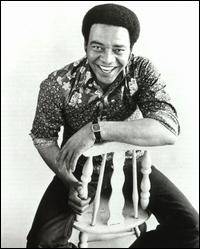 Bill Withers – “Ain’t No Sunshine.” From Just As I Am (Sussex, 1971).
I’m going to cheat a little and throw in one Seventies record. 1971, to be exact. Right away, you can hear how the song straddles the decades. On the Sixties side is Bill’s clear, plaintive singing style and the very brief running time. (Only two minutes and five seconds.) On the Seventies side, there’s the relatively complex arrangement including drums mixed way up front and a full string section.
Bill Withers – “Ain’t No Sunshine.” From Just As I Am (Sussex, 1971).
I’m going to cheat a little and throw in one Seventies record. 1971, to be exact. Right away, you can hear how the song straddles the decades. On the Sixties side is Bill’s clear, plaintive singing style and the very brief running time. (Only two minutes and five seconds.) On the Seventies side, there’s the relatively complex arrangement including drums mixed way up front and a full string section.
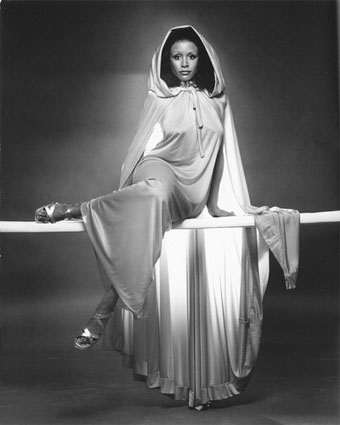 Freda Payne – “Band Of Gold.” From Band Of Gold (Invictus, 1970). (Available on The Best Of Freda Payne. The original album is actually out of print.)
Powered by a rumbling, pounding rhythm section and an unforgettable chorus, Freda Payne’s “Band Of Gold” was released in 1969 and went on to dominate 1970’s pop charts on both sides of the Atlantic. In the UK, it spent an amazing six weeks at #1. Here in the USA, it sold a million copies, earning Freda Payne her first gold record. In terms of the lyrics, though, this record is baffling. Let me see if got this straight: dude marries ol’ girl, but then on their wedding night, they “stay in separate rooms.” What’s that about? Then later, she talks about how she’s waiting for her man to “come back” to “love me like you tried before.” What does “tried” mean? Is he cheating on her? Is he gay? Does he need a Viagra prescription? Talk to me, people.
Freda Payne – “Band Of Gold.” From Band Of Gold (Invictus, 1970). (Available on The Best Of Freda Payne. The original album is actually out of print.)
Powered by a rumbling, pounding rhythm section and an unforgettable chorus, Freda Payne’s “Band Of Gold” was released in 1969 and went on to dominate 1970’s pop charts on both sides of the Atlantic. In the UK, it spent an amazing six weeks at #1. Here in the USA, it sold a million copies, earning Freda Payne her first gold record. In terms of the lyrics, though, this record is baffling. Let me see if got this straight: dude marries ol’ girl, but then on their wedding night, they “stay in separate rooms.” What’s that about? Then later, she talks about how she’s waiting for her man to “come back” to “love me like you tried before.” What does “tried” mean? Is he cheating on her? Is he gay? Does he need a Viagra prescription? Talk to me, people.
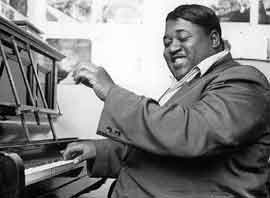 Billy Stewart – “Sittin’ In The Park.” From I Do Love You (Chess, 1965).
Of these six tunes, Billy Stewart’s “Sittin’ In The Park” is the only one with a running time over three minutes. Nonetheless, with its doo wop-ish feel and sing-along breeziness, this is a definitely a Sixties song. Despite having heard this song my whole life, I had no idea Billy Stewart sang it. For that matter, until Kalamu’s great “Summertime” post last year, I didn’t know who Billy Stewart was at all! I don’t know who exactly I thought did sing “Sittin’ In The Park,” but I always associated it with Southern California lowrider culture. Go figure.
—Mtume ya Salaam
This is crazy
Mtume is writing about these songs like he remembers them. He wasn’t even born when they came out. None of these. Sure he heard them around the house but he was still a toddler, how aware could he have been?
And then he goes on to break down the difference between Sixties Soul and Seventies Soul. I think he's right but I’m not sure if he is fully aware of why he’s right. You’ve got to check the social context.
Mtume, the difference is Civil Rights (sixties) versus Black Power (seventies). We Shall Overcome versus Power To The People.
1968, King is assassinated. America goes up in flames. By the seventies Negores are dead. Colored people are resurrected Black, Proud, Beautiful and mad as a motherfucker! And you could hear it in our music.
Hear that Soul was no longer solely (nor simply) dance music. The dancing we did in the streets was now war dancing. You are absolutely right in describing the aesthetic differences. Sure you can hear it. And what you are hearing is sleeping giants waking up to the possibility of being our own gods. (And yes, I’m implying that we’ve become our own demons.)
Damn, the power of this music: got a man who wasn’t even born then talking about it like he waa there. I guess, through the power of Soul, he was there. And not just Mtume, but the whole world was there. Right there with us as we marched and sang. Swang and sang. Soul was the music not just of a people but also of a people’s movement. The movement was tres important, very, very important in understanding the music. The essence of our Soul is resistance, is struggle, is revolution. Moving on up, keeping on keeping on…
I love it. This shit is crazy. And I mean that in a good way!
Billy Stewart – “Sittin’ In The Park.” From I Do Love You (Chess, 1965).
Of these six tunes, Billy Stewart’s “Sittin’ In The Park” is the only one with a running time over three minutes. Nonetheless, with its doo wop-ish feel and sing-along breeziness, this is a definitely a Sixties song. Despite having heard this song my whole life, I had no idea Billy Stewart sang it. For that matter, until Kalamu’s great “Summertime” post last year, I didn’t know who Billy Stewart was at all! I don’t know who exactly I thought did sing “Sittin’ In The Park,” but I always associated it with Southern California lowrider culture. Go figure.
—Mtume ya Salaam
This is crazy
Mtume is writing about these songs like he remembers them. He wasn’t even born when they came out. None of these. Sure he heard them around the house but he was still a toddler, how aware could he have been?
And then he goes on to break down the difference between Sixties Soul and Seventies Soul. I think he's right but I’m not sure if he is fully aware of why he’s right. You’ve got to check the social context.
Mtume, the difference is Civil Rights (sixties) versus Black Power (seventies). We Shall Overcome versus Power To The People.
1968, King is assassinated. America goes up in flames. By the seventies Negores are dead. Colored people are resurrected Black, Proud, Beautiful and mad as a motherfucker! And you could hear it in our music.
Hear that Soul was no longer solely (nor simply) dance music. The dancing we did in the streets was now war dancing. You are absolutely right in describing the aesthetic differences. Sure you can hear it. And what you are hearing is sleeping giants waking up to the possibility of being our own gods. (And yes, I’m implying that we’ve become our own demons.)
Damn, the power of this music: got a man who wasn’t even born then talking about it like he waa there. I guess, through the power of Soul, he was there. And not just Mtume, but the whole world was there. Right there with us as we marched and sang. Swang and sang. Soul was the music not just of a people but also of a people’s movement. The movement was tres important, very, very important in understanding the music. The essence of our Soul is resistance, is struggle, is revolution. Moving on up, keeping on keeping on…
I love it. This shit is crazy. And I mean that in a good way!
***
I've got something to add to this mix. The vocal tracks without the backing instruments for The Temptations ("I Wish It Would Rain") and The Miracles ("I Second That Emotion") tracks. These tracks are available on two extremely important DVDs. Anyone even mildly interested in the backstory on the Motown sound should immediately add these DVDs to their library. They are superb documents that include performance videos from the period and interviews with the principles that chronicle their respective careers, plus a capella tracks from the Motown vaults. The DVDs are: The Temptations Get Ready - Definitive Performances 1965 - 1972 (Hip-O Records/Motown - 2006) and Smokey Robinson and The Miracles - Definitive Performances 1963 - 1987 (Hip-O Records/Motown - 2006). —Kalamu ya Salaam P.S. This is one of those weeks that has happened almost totally by coincidence. Mtume and I did not talk to each other about what we were writing and it was round (well after) midnight before we were through writing. When I read what Mtume wrote and re-read what I wrote, well, that’s when I came to the conclusion: This shit is crazy. Beautiful crazy. Deeply, soulfully, wonderfully, awe-filledly crazy!This entry was posted on Sunday, June 3rd, 2007 at 3:11 am and is filed under Classic. You can follow any responses to this entry through the RSS 2.0 feed. You can leave a response, or trackback from your own site.
4 Responses to “FREDA PAYNE / “Band Of Gold””
June 3rd, 2007 at 4:45 am
I love the way you fellas broke this down. Like Mtume, I was just a tot boppin’ around the house listening and singing these songs but they were a weekly, if not daily part of my existence. I lived and breathed soul music. So, with the emergence of hip hop and other styles of music that borrow from R&B soul music I think over the years I have come to take pure soul (as it become) for granted. Yet, every time I hear it I go on a mental trip back to backyard bbqs, family members who are no longer here and good times. Thanks for taking me back.
June 3rd, 2007 at 11:00 am
I feel what Mutume is talking about. I noticed it whilst listening to your Jackie Wilson feature way back when. Jackie is principly serving the songs and they’re there for entertainment. Probably with as much gymnastics as Stevie does in his 70’s songs but Stevie seems to dwell more on his notes. So i’m sure Stevie (vis a v Marvin) must have something to do with it but maybe also conversly someone like JB stripping down the music and making it even tougher, funk for funks sake.
I’m just gabbling but maybe it makes some sense.
Thanks for the accapellas, especially I wish it would rain aswell as the Cougars version. Kinda reflects how i’m feeling at the moment, miserable but the sun is out shining, somehow it’s easier to be miserable in the rain.
June 3rd, 2007 at 11:16 pm
Kalamu, I agree with your points about how the music reflects the social differences between the optimism and hope of the early 60s vs. the pride, anger, and disappointment of the 70s. But I think thats only half the story.
The other half is that popular music itself was going through a huge change. Creative control was shifting into the hands of the artists rather than the producers. So the changes Mtume wrote about were also about artists putting out their own sounds and lyrics instead of just being performers
This freedom – sadly like most – was slower in coming to black artists. Dylan and the Beatles were at the vanguard of this musical change in the early sixties. Black artists didn’t seem to get this kind of control over their own music until around 1970-1971. I’m thinking of Marvin and “What’s Going On”
July 29th, 2010 at 4:03 pm
i’m only 21 and i wasn’t around when all this music was produced but i can tell you one thing and that is 60’s and 70’s music is all feel good music everytime i listen to smokey robinson or marvin gaye its like i can feel there music in me. the songs have so much meaning behind there words it takes my breath away eveytime i listen to them!
Leave a Reply
| top |